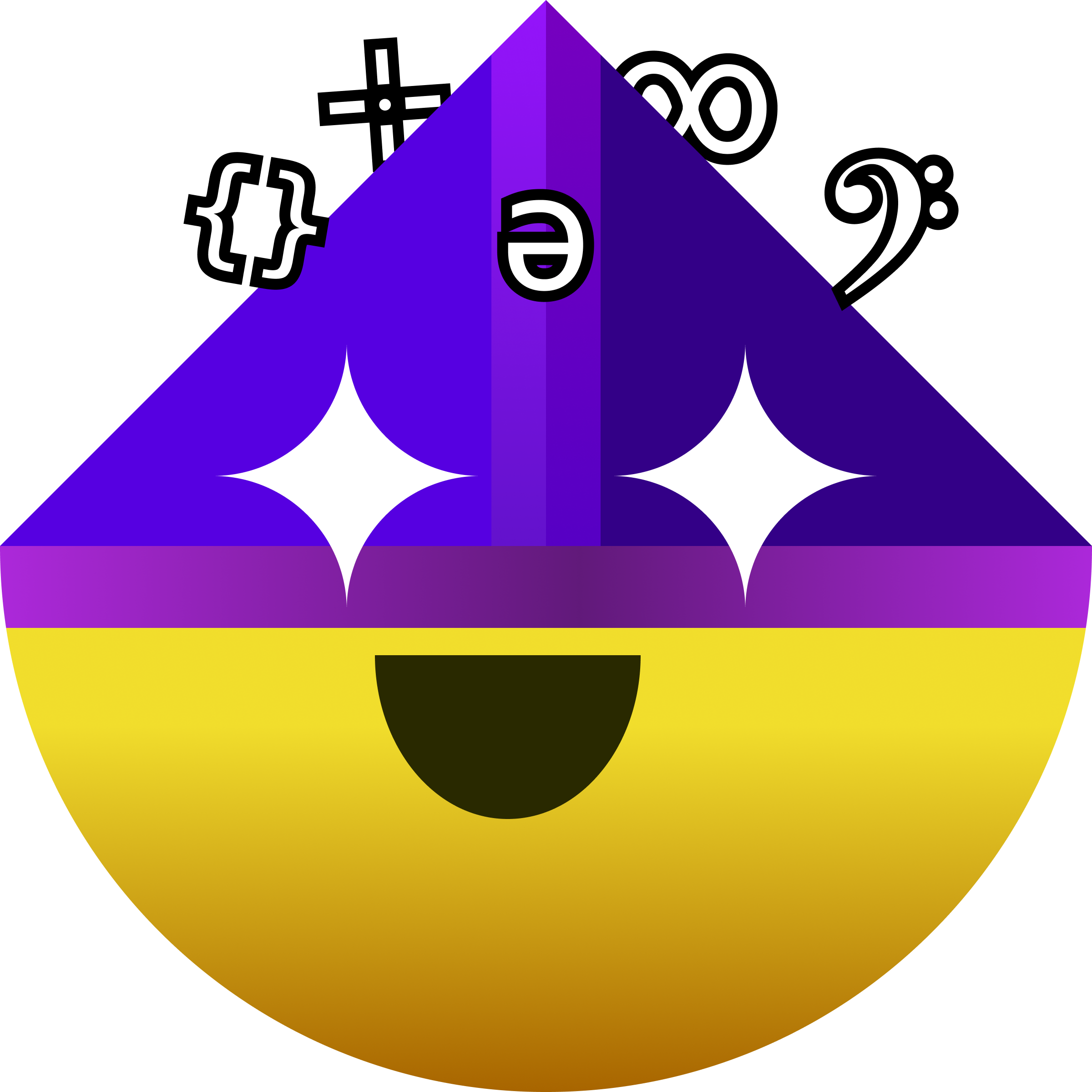Germany has three genders lmao
Most gendered languages I know about have three genders. Oh, wait. I got it. Ha!
Technically so does English, we just stopped using the male gendered pronoun sometime in the Renaissance, Early Modern Period, or Victorian Period, I don’t know when.
Back in Shakespeare’s day, woman = female, man = gender neutral, (kinda like the word “Dude” it can be used for both women and wifmen,) and finally wifman = male.
Still not sure why the male gendered pronoun fell out of common parlance.
Technically so does English, we just stopped using the male gendered pronoun sometime in the Renaissance, Early Modern Period, or Victorian Period, I don’t know when.
around 900 ad.
wifman = male
are you sure you’re not thinking of wǣpnedmann? everything I can find about wifman tells me that it means “woman” and the root derivation is “wife person”.
Someone else corrected me, I was thinking of wereman. Haven’t read Shakespeare in a couple decades
wer and wife
TIL the etymology of how we talk about shapeshifters in folk myth. Dope, thank you!
“Working late one night in the lab, Guy Fellows was bitten by a radioactive human being. Now he seems like an ordinary person, but under the full moon he undergoes a transformation and become a wereman! All the powers of an adult male human, trapped inside the frail shell of an adult male human, he is Wereman!”
Shakespeare was known to use archaic language for his plays but by his time this was largely codified into what we would recognize as modern usage. You are thinking of old English. It also goes beyond just man (used more or less like we would use the word human) , other gendered words originally had specific meaning independent of gender. You also got it a bit backwards. Wifman is female, wereman is male. Others include.
Boy : knave or troublemaker
Girl : Neutral word for young child. Basically like “kid”
Thanks! No wonder his plays were so hard to read. I haven’t read Shakespeare in a good 20 years so it’s no surprise that I’ve mixed up the words and usages.
He is an interesting literary figure. And in personal opinion quite frankly kind of a hack. You got to appreciate the audacity of someone who tries to use “Dost” nearly two centuries out of date and then just out of the blue makes up wholesale complete words from scratch to fit iambic pentameter.
I love his stuff don’t get me wrong but he wasn’t exactly highbrow entertainment of his day. Still his early modern English is easily legible. Chaucer’s middle english is distinctly more garbled and if you go back to your Old English where these terms originate it’s like trying to read another language entirely. Like this is technically English :
Hwæt. We Gardena in geardagum, þeodcyninga, þrym gefrunon, hu ða æþelingas ellen fremedon. Oft Scyld Scefing sceaþena þreatum, monegum mægþum, meodosetla ofteah, egsode eorlas. Syððan ærest wearð feasceaft funden, he þæs frofre gebad, weox under wolcnum, weorðmyndum þah, oðþæt him æghwylc þara ymbsittendra ofer hronrade hyran scolde, gomban gyldan. þæt wæs god cyning.
Dutch even has non-binary words.
I call bullshit on this, e.g. “de aanrecht” sounds just plain wrong. I know that people in the Netherlands are often using the wrong gender, which always sounds weird to me.
Words that change meaning with different genders (e.g. “de aas” and “het aas”) are kinda cool tho.
Only three genders? They need to get with the times.
Of course! Hitler proved all right wing Germans are pussies with dicks.
English is incredibly easy. My mother tongue is Russian and I’m learning German, both have genders… which are quite often different. That makes things even harder :D
Polish speaker here. We not only have gendered nouns but also verbs and adjectives.
How does that work out? I mean in french you’d gender it by what it is defining. A yellow car, the “A” is gendered the same as the cars gender.
Oh.
I think I get it. That must be confusing for foreigners!
Cheers Polish brothers and sisters!
Nah. Having pronouns would be too easy. We are changing the end of the word. Yellow would be “żółty” if male, “żółta” if female and “żółte” if genderless or plural. Unless male plural, then it would be “żółci”.
polish speaker too, polish is weird smh
Spanish speaker here. For as chaotic and wild as English is, I’ve always appreciated that it has no gendered nouns. Why are chairs female? Makes no sense
Grammatical genders are just that. Grammatical. It’s a classification scheme. Latin had neutral nouns and plenty of languages make grammatical differences between animate and inanimate nouns. That current romance languages make a deliberate division between “male” and “female” nouns does not mean they have to correspond to actual features of human beings.
That being said. It’s ridiculous that agua is femenine but with the definite article it has to be el agua in singular but las aguas in plural. All the explanations by RAE simply amounts to “we like it this way, lolol”.
Maybe you are interested in Finnish. We do not have gendered pronouns either. Everyone is just “hän”.
Hold my Duolingo owl, I’m gonna look up Finnish that sounds awesome
Can I keep it after that? I always wanted a pet.
So you’re saying Hän is Solo?
Hän man is Speedy
Chairman, chairwoman, or chairperson?
Somone has to come up with the word chairdude. And some corporate bean counter will invent the word chairhuman to show how diverse they are.
Clearly, because chairs are obviously male (German). Anything else is just silly.
I’m sorry, French here, but a chair can be both. It depends of the type : Une chaise is obviously feminine while un siège or un fauteuil are definitely masculin. Also Germanic language like English and German mixing these two meaning are silly languages.
Why. Just why? It’s just you French and your obsession for…
la silla vs el asiento (Spanish)
Fuck.
I think we just spotted a cultural fracture btw people of Romance language and the one of Germanic language.
Yes, also, mice are obviously female.
Dick in French is, you guessed it, female.
As are mustache and balls. Meanwhile, bra, vagina and boobs are male.
Don’t tell Republicans
Die Waschmaschine die
So it’s a girl?
Die Maschine. So yes all machines are girls /s
The baguette, croissant, and beret are killing me.
is that like how you have to memorize every single articels (der, die, das) for every word in german?
Uh? I’m Portuguese and it works in the same in my language. I don’t know what the big deal is. You get the gender by the arti…
Oh…
Non-neutral nouns have always struck me as odd. They provide no info gain whatsoever outside of actually providing a gender if you’re referring to a person or animal (for example, in Spanish, gato -> male cat, gata -> female cat). And in those situations, a short sentence can provide instant clarification if needed in a non-gendered language like English.
It’s a language feature built to be helpful in one use case, whilst simultaneously being worse in about a bazillion others. It’s a very odd choice.
There’s an argument to be made that it might help clarifying when speaking to someone. Consider these two German sentences:
“Der rote Apfel” – the red apple
“Die rote Ampel” – the red traffic light
Imagine a noisy environment, a quiet speaker or some other problem and you only understand
“Die rote A***el” – the red x***xx
In a language like English, you don’t have enough information to understand the meaning. The German gender system helps to direct your possible matching words (Ampel or Apfel) to the correct one, as “Die rote Apfel” is grammatically incorrect.
Another point I want to make is that it isn’t “being worse in about a bazillion other” use cases. Native speakers don’t really have an issue with noun class systems. It’s just very unintuitive and tedious for non-native language learners to memorize all the genders of nouns.
I’d like to interject for a bit, if I may.
While german has cases, somewhat more complex verbs and gendered nouns, english also has its peculiarities that make it hard for non-natives to learn. Things like spelling and using the same word in a bazillion contests and methaphor-based idioms come to mind first. There are also simple-to-understand pecularities like its/it’s and paid/payed which not even natives get right sometimes.
The point being, for all the “hard” and “useless” parts of one language the other language (as it’s always comomparing apoles to oranges) has similarily “hard” and “useless” features itself, so in my opinion it more or less evens out.
What makes a language “easier” or “harder” to learn is how much of it you already know. In other words that’s usually how similar it is to the languages you know already.
I mostly agree. Sorry if it came out that way, but my comment was not meant to be stating that English is way easier than German. Just wanted to point out that this “hard” and “useless” feature is not that useless and only hard for language learners.
That doesn’t mean that a language can’t have more pointlessly convoluted things than another language. For example, counting in French.
I’d argue english ortography is a lot more pointlessly convoluted than french numbers (*cough* *cough* ough)
And why did we in school made listening comprehensions for English where you would need to understand people speaking in the middle of a construction side next to a heavy used road?
I mean even in German I wouldn’t have understood them but I got an bad grade because I didn’t understand it in English.
Wait until you hear that sometimes we can use both pronoums with some words but not others.
We can say “el mar” the(male) sea, or “la mar” the(female) sea. But you would never say “la oceano” it’s only “el oceano” the(male) ocean.
Is it female?
Yes.
It depend.
“Machine à laver” (washing machine) = female
“Lave linge” (laundry washer) = male
intentionally misreading as wholesome - the idea is to subvert the concept of gender.
“You’ll never be a real woman!”
“Neither will the chair I’m sitting in but you keep calling it ‘her’ so maybe stfu.”
That’s a glol for me.
It’s feminine in Spanish.
Cough, Though, Through (+ Threw), Thorough, Rough, Thought, Ought, Tough.
I’d argue though that it’s ultimately similar levels of complexity. Because sure in romance languages you need to know (and probably just “get” what gender objects are. But in English you need to remember/just “get” which words have “i before e” (because the “rule” is utter trash), and all the inconsistent pronunciation of similarly spelt words.
Most European languages with accented vowels (and some with accented other letters too) have a pretty consistent pronunciation (when the accented letters are used).
English speakers have to just memorize that spelling bullshit and we get it wrong constantly.
But the real kicker is the Order of Adjectives. This doesn’t help with understanding and the meaning in unchanged but no one actually knows the time without being told it exists. But we all follow it and know when it’s broken. It makes sentences just feel wrong.
The order of adjectives are really not set rules. It is merely convention.
A much better example is the use of propositions. For example look up, look on, look out, and look into all mean completely different things.
It’s a thing in many languages. My first language has it too and it’s not hard to speak it (though I still make a lot of mistakes lol) because if you’re a native, you just remember the gender of every single word. But English is still undoubtedly much much easier to learn















